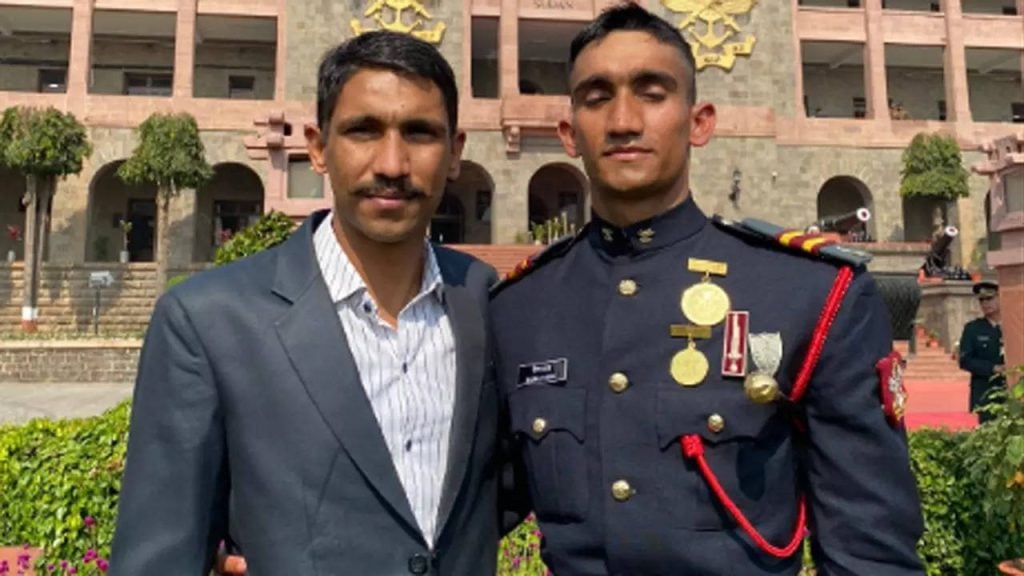The General Ability Test (GAT) is a pivotal part of the National Defence Academy (NDA) examination, administered by the Union Public Service Commission (UPSC). For candidates aspiring to serve in the Indian Army, Navy, or Air Force, excelling in the GAT is paramount.
This test assesses a candidate’s proficiency in various subjects, including English, General Knowledge (GK), Physics, Chemistry, Geography, and more. In this comprehensive guide, we will explore effective strategies, essential topics, and expert tips to help you succeed in the NDA 2025 GAT.
The GAT is one of the two primary papers in the NDA written examination, with the other being Mathematics. The GAT is designed to evaluate a candidate’s overall knowledge and aptitude, comprising two distinct sections:
Breakdown of the GAT
- Total Marks: 600
- Duration: 2.5 hours
- Sections:
- Section A: English (200 marks)
- Section B: General Knowledge (400 marks)
Marking Scheme
- English: 50 questions
- General Knowledge: 100 questions
- Negative Marking: 1/3 mark deducted for each incorrect answer
Understanding the structure of the GAT is crucial for effective preparation. Each section tests specific skills and knowledge areas, making it essential to develop a targeted study plan.
Also Read | 4 Smart Strategies for Non-Maths Students to Clear NDA Exam
1. Detailed GAT Syllabus for NDA 2025
To prepare effectively for the GAT, candidates must familiarize themselves with the syllabus, which encompasses a range of topics. Below is a detailed breakdown of the subjects covered in the GAT.
Section A: English (200 Marks)
The English section assesses language proficiency through various topics:
| Topic | Details |
|---|---|
| Comprehension | Passage-based questions focusing on meaning, tone, and context. |
| Spotting Errors | Identifying grammatical mistakes in sentences. |
| Synonyms/Antonyms | Understanding meanings and opposites of words. |
| Sentence Improvement | Correcting incomplete or poorly structured sentences. |
| Fill in the Blanks | Completing sentences with the appropriate words or phrases. |
| Idioms & Phrases | Familiarity with commonly used idioms, their meanings, and usage. |
| Para Jumbles | Rearranging jumbled sentences to form coherent paragraphs. |
| One Word Substitutes | Replacing phrases with single words that convey the same meaning. |
2. Preparation Tips for English Section
- Read Widely: Engage with newspapers, magazines, and novels to enhance your vocabulary and comprehension skills.
- Practice Comprehension: Regularly solve comprehension exercises to improve reading speed and understanding.
- Review Past Papers: Analyze previous NDA papers to understand the types of questions asked in the English section.
Section B: General Knowledge (400 Marks)
The General Knowledge section is extensive and covers various subjects. Key areas include:
| Topic | Details |
|---|---|
| Physics | Fundamental concepts like force, motion, energy, and electricity. |
| Chemistry | Basic principles, including elements, compounds, and the periodic table. |
| General Science | Questions related to biology, human anatomy, and ecology. |
| History | Ancient, medieval, and modern Indian history, major events, and dates. |
| Geography | Physical and human geography, including landforms and resources. |
| Current Affairs | National and international events, sports, and political developments. |
| Indian Politics | Understanding the political system, constitution, and major parties. |
| Economics | Basic economic concepts such as GDP, inflation, and government policies. |
| Defence & Armed Forces | Structure and functions of the Indian Armed Forces. |
Also Read | Your Step-by-Step Guide to Cracking the NDA Exam
3. Preparation Tips for General Knowledge Section
- Stay Updated: Regularly read newspapers like The Hindu or The Times of India for current affairs.
- Use NCERT Textbooks: Refer to NCERT textbooks from Class 6 to 12 for a solid foundation in History, Geography, Physics, and Chemistry.
- Focus on Key Events: Pay special attention to India’s Freedom Struggle and significant historical dates.
- Practice Maps: Improve geography skills by practicing map-related questions and exercises.
- Engage with Online Resources: Utilize online quizzes and apps to stay informed about current events and enhance knowledge.
4. Effective Study Strategies for GAT Preparation
Preparing for the GAT requires a strategic approach. Here are some effective study strategies to help you excel.
Time Management
The GAT is a time-constrained exam, with a total of 150 questions to be answered in 2.5 hours. Developing strong time management skills is crucial.
- Set Time Limits: While practicing, allocate specific time frames for each section to simulate exam conditions.
- Prioritize Questions: Tackle easier questions first to build confidence and save time for more challenging ones.
Regular Practice
Consistent practice is key to mastering the GAT.
- Mock Tests: Regularly take mock tests to familiarize yourself with the exam format and question types.
- Previous Year Papers: Solve past NDA papers to identify patterns and frequently asked questions.
Focused Study Plan
Create a comprehensive study plan that covers all subjects.
- Timetable: Develop a timetable that allocates time for each subject based on your strengths and weaknesses.
- Daily Goals: Set achievable daily goals to ensure consistent progress.
Revision Techniques
Effective revision is essential for retaining information.
- Concise Notes: Create brief notes of important concepts, formulas, and definitions for quick revision.
- Group Study: Engage in group study sessions to discuss topics and clarify doubts.
Stay Informed
Keeping up with current affairs is vital for the General Knowledge section.
- News Channels: Watch news channels and listen to podcasts to stay updated on national and international events.
- Online Resources: Follow reputable current affairs websites and apps for daily updates.
5. Mock Tests
Mock tests play a vital role in your preparation for the GAT. They help simulate the actual exam environment and assess your readiness.
Benefits of Taking Mock Tests
- Exam Simulation: Mock tests replicate the pressure and time constraints of the actual exam, helping you manage anxiety.
- Performance Assessment: They provide insights into your strengths and weaknesses, allowing you to adjust your study plan accordingly.
- Time Management Practice: Regularly taking mock tests enhances your ability to manage time effectively during the exam.
How to Maximize Mock Test Effectiveness
- Analyze Results: After each mock test, thoroughly analyze your performance to identify areas for improvement.
- Focus on Weak Areas: Devote extra time to subjects or topics where you struggled during the mock tests.
- Regular Scheduling: Incorporate mock tests into your study routine to maintain a consistent assessment of your progress.
6. Final Tips for GAT Success
As you prepare for the NDA 2025 GAT, consider these final tips to enhance your chances of success.
Maintain a Positive Mindset
A positive attitude can significantly impact your performance.
- Stay Motivated: Remind yourself of your goals and the reasons for pursuing a career in the defence services.
- Visualize Success: Practice visualization techniques to imagine yourself succeeding in the exam.
Health and Well-being
Your physical and mental well-being are crucial for effective studying.
- Regular Exercise: Engage in physical activities to relieve stress and improve concentration.
- Balanced Diet: Maintain a healthy diet to ensure your brain functions optimally.
Seek Guidance
Don’t hesitate to seek help when needed.
- Mentorship: Consider finding a mentor or joining study groups to share knowledge and resources.
- Online Forums: Participate in online forums and communities for NDA aspirants to exchange tips and strategies.
Also Read | How I Cracked My NDA Exam (Preparation Tips)
Conclusion
Cracking the General Ability Test (GAT) for NDA 2025 requires a structured approach, consistent practice, and a deep understanding of the syllabus. By focusing on key subjects such as English and General Knowledge, staying updated with current affairs, and utilizing recommended resources, candidates can significantly improve their chances of success. Implementing effective study strategies, maintaining a positive mindset, and prioritizing health will further enhance your preparation. With dedication and the right approach, you can excel in the GAT and pave your way to a rewarding career in the Indian Armed Forces.
FAQs
Q1: What is the total duration of the GAT exam?
The GAT exam lasts for 2.5 hours.
Q2: How many marks is the GAT paper worth?
The GAT paper carries a total of 600 marks.
Q3: Is there negative marking in the GAT?
Yes, there is a negative marking scheme where 1/3 mark is deducted for each incorrect answer.
Q4: Which subjects are covered in the GAT?
The GAT covers English and General Knowledge, which includes Physics, Chemistry, Geography, History, and Current Affairs.
Q5: How can I stay updated with current affairs?
You can stay updated by reading newspapers, watching news channels, and following current affairs apps and websites.










